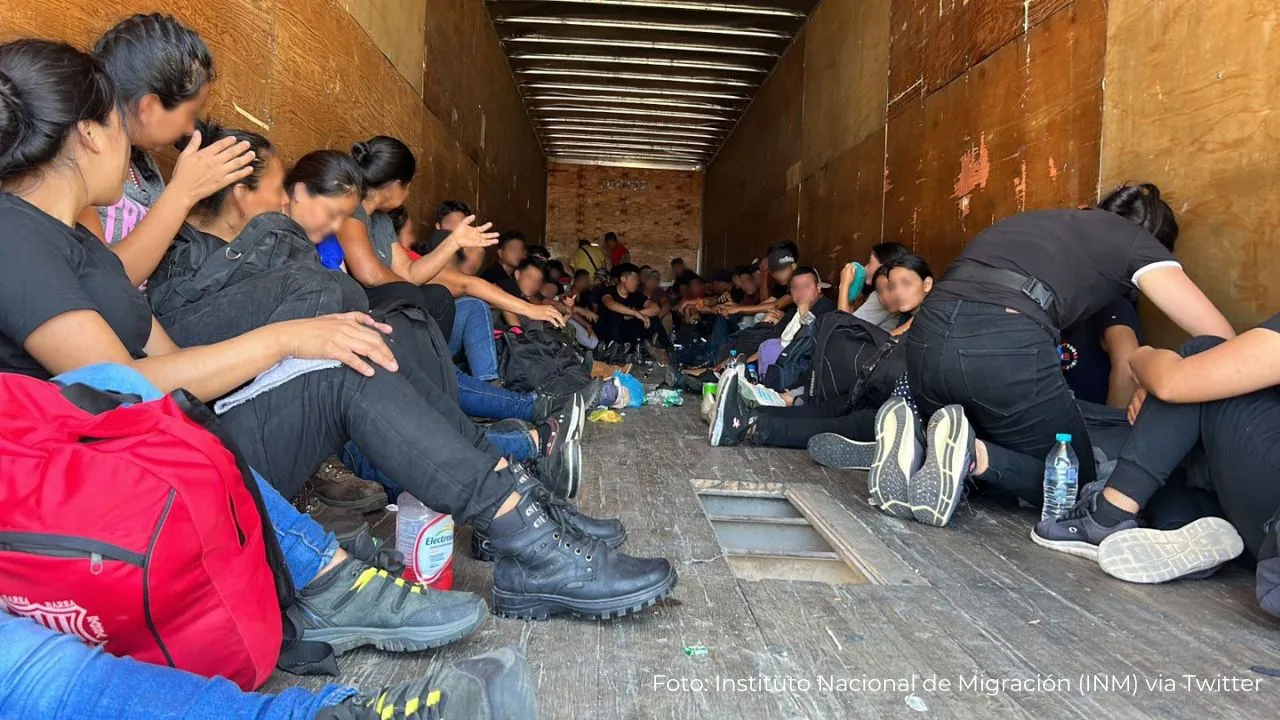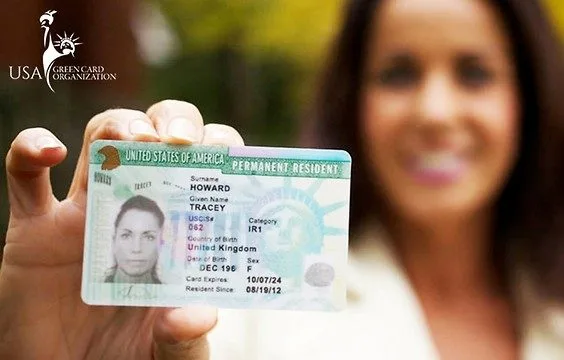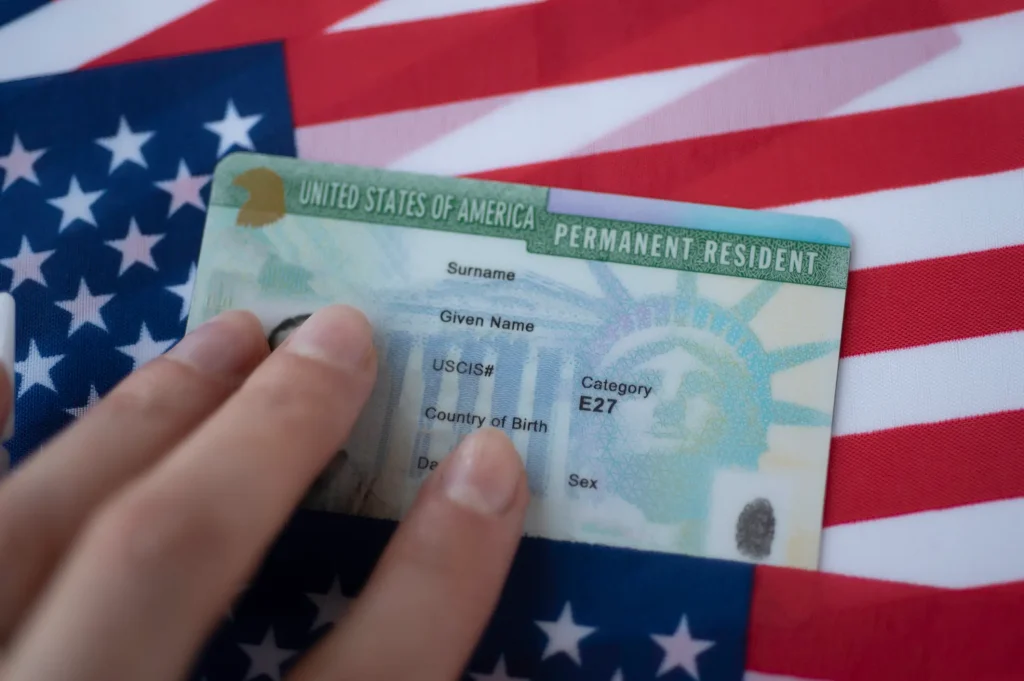How to Obtain a Green Card

You invested time, money and emotions to build a life in the USA. Don’t let one mistake ruin everything! The reality is that immigration laws are complex and constantly changing. A simple mistake can result in deportation, taking you away from your family, job and dreams.
Challenges of Obtaining a Green Card
Despite the various options available, obtaining a Green Card can be a challenging process. Some of the main difficulties include:
- Long Waiting Times
- For some categories, such as family members of permanent residents or less-skilled workers, the waiting time can take years or even decades due to annual visa limits.
- Complexity of the Process
- The required documentation is extensive, and any errors can result in delays or even denial of the application. Additionally, changes in immigration policies can affect eligibility criteria.
- High Costs
- Processing fees, immigration attorneys, and other associated costs can be prohibitive for many families.
Anúncios
- Country-Specific Restrictions
- Countries with high rates of immigration to the U.S., such as Mexico, India, and China, face additional limits, further increasing waiting times.
- Changes in Immigration Policies
- Different administrations may adopt more or less restrictive policies, directly affecting applicants’ chances of success.

Legal Ways to Obtain a Green Card
There are several ways to obtain a Green Card, each with its own requirements and procedures. Below, we list the main categories:
- Family-Based Green Card
- Immediate relatives: Spouses, unmarried children under 21, and parents of U.S. citizens can apply for a Green Card without waiting for an annual quota.
- Other family members: Siblings and married children of U.S. citizens, as well as spouses and children of permanent residents, may also qualify, but they are subject to annual limits and waiting times.
- Employment-Based Green Card
- EB-1: For individuals with extraordinary abilities, outstanding professors and researchers, and multinational executives.
- EB-2: For professionals with advanced degrees or exceptional abilities in sciences, arts, or business.
- EB-3: For skilled workers, professionals with bachelor’s degrees, and other unskilled workers (such as in labor-shortage sectors).
- EB-4: For special categories, such as religious workers, international organization employees, and members of the armed forces.
- EB-5: For investors who invest at least 800,000(inruralorhigh−unemploymentareas)or800,000(inruralorhigh−unemploymentareas)or1.05 million in projects that create at least 10 jobs in the U.S.
- Refugee and Asylee Status
- Individuals fleeing persecution in their home countries can apply for asylum in the U.S. After one year of residing with asylee status, they can apply for a Green Card.
- Diversity Visa Lottery
- The Diversity Visa Lottery program awards 50,000 Green Cards annually to individuals from countries with low rates of immigration to the U.S. Applicants must meet educational or professional requirements.
- Victims of Crime or Abuse
- Victims of violent crimes (such as human trafficking or domestic violence) who cooperate with authorities may qualify for a Green Card through visas like the U Visa or VAWA (Violence Against Women Act).
- Other Categories
- Long-term residents: Individuals who have lived in the U.S. continuously since before January 1, 1972, can apply for a Green Card through the “registry” process.
- Special programs: Some programs, such as the Liberian Refugee Immigration Fairness (LRIF), offer specific pathways for certain nationalities.

Growth of Immigration in the U.S.
The United States has a long history of immigration, and the number of immigrants in the country has grown steadily over the decades.
According to the Pew Research Center, in 2020, there were over 44 million immigrants in the U.S., representing about 13.7% of the total population. This number includes both legal residents and undocumented individuals.
Some factors contributing to the growth of immigration include:
- Economic Opportunities
- The U.S. remains one of the top destinations for people seeking better living conditions and job opportunities.
- Family Reunification
- Many immigrants seek to reunite with family members already living in the U.S., which fuels the flow of migration.
- Global Crises
- Conflicts, persecution, and natural disasters in various parts of the world lead many people to seek refuge in the U.S.
- Cultural Diversity
- The cultural diversity of the U.S. attracts people from different backgrounds, creating a welcoming environment for immigrants.
However, the increase in immigration has also sparked debates about border control policies, social integration, and impacts on the labor market.
Addressing Common Questions About the Green Card
Here are some of the most common questions about the Green Card:
- How long does it take to get a Green Card?
- The time varies by category. Immediate relatives of U.S. citizens can obtain a Green Card in a few months, while other categories may take years.
- Can I work in the U.S. while waiting for a Green Card?
- It depends on your current status. Some visas, like the H-1B, allow you to work while waiting. Others require specific work authorization.
- Is the Green Card valid indefinitely?
- The Green Card is valid for 10 years and must be renewed. However, permanent resident status is permanent as long as you meet the conditions, such as not committing serious crimes or spending extended periods outside the U.S.
- Can I lose my Green Card?
- Yes, if you commit certain crimes, abandon your U.S. residence, or spend too much time outside the country without a re-entry permit.
- Can I become a U.S. citizen with a Green Card?
- Yes, after five years (or three years if married to a U.S. citizen), you can apply for naturalization.
- What if my application is denied?
- You can appeal the decision or reapply, depending on the reasons for the denial.
- Can I travel outside the U.S. with a Green Card?
- Yes, but prolonged trips (more than six months) may raise questions about your intent to maintain permanent residence.
Conclusion
Obtaining a Green Card is a complex process, but it can be the key to a new life in the United States. With various pathways available, from family sponsorship to investments and humanitarian programs, there are options for different types of applicants.
However, the challenges, such as long waiting times and high costs, cannot be ignored. Additionally, the continued growth of immigration in the U.S. reflects the country’s central role as a global destination for people seeking opportunities and safety.
If you are considering applying for a Green Card, it is essential to be well-informed and, if possible, seek professional guidance to navigate the process successfully.
